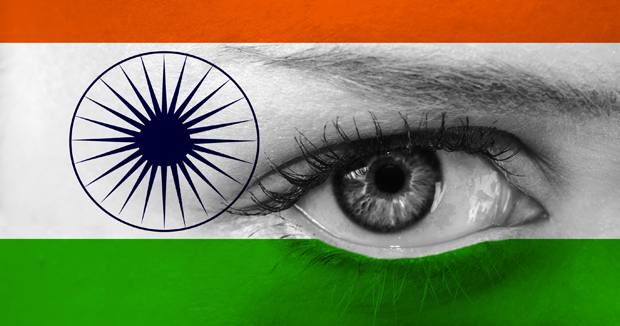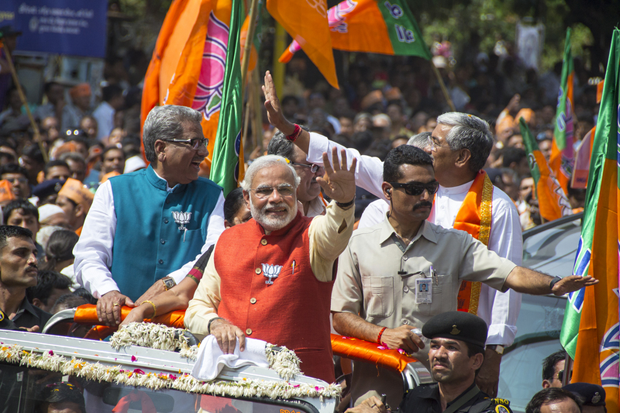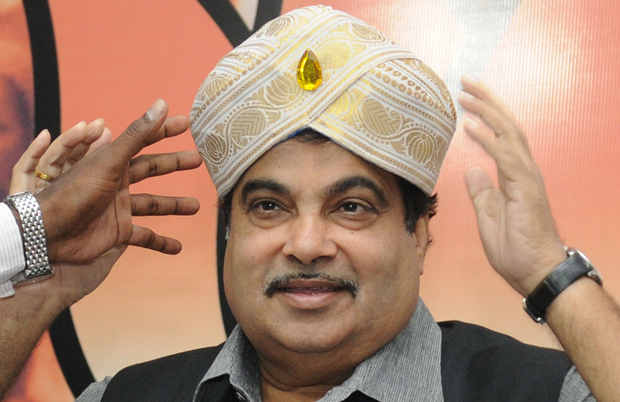16 Jun 2014 | India, News, Politics and Society

(Photo illustration: Shutterstock)
How does one gauge if some online communication, especially a tweet or a Facebook post, is “of a menacing character”? How does one determine, even with an iota of objectivity, if such communication can be “grossly offensive”, or causes “annoyance and inconvenience” to another person? And, to top it all, what does it say about the reasonability, let alone legal validity, of a statutory provision which imposes criminal liability on anyone caught in its tangle? If only the legality was an issue. For, it could still be fought out in the courts. But when this provision becomes the basis for an alarming number of instances of vigilantism, spiralling into riots, then the repugnancy hits one smack in the face.
So is the case with Section 66A of India’s Information Technology Act, which reads:
66A. Punishment for sending offensive messages through communication service, etc.
Any person who sends, by means of a computer resource or a communication device,—
(a) any information that is grossly offensive or has menacing character; or
(b) any information which he knows to be false, but for the purpose of causing annoyance, inconvenience, danger, obstruction, insult, injury, criminal intimidation, enmity, hatred or ill will, persistently by making use of such computer resource or a communication device, shall be punishable with imprisonment for a term which may extend to three years and with fine.
As reported, Facebook posts are landing people on the wrong side of the law. Meanwhile, it turns out that the arrestee had the cops set upon him because he had dared criticize the chief minister, so Section 66A becomes a tool for vendetta. To make matters worse, “concerned citizens” have started forming vigilante groups to spot such online posts, and bring the offenders to justice. And as it happens in India, to buttress the allegation of “derogatory” or “grossly offensive”, in almost every case, the provisions dealing with the offences of blasphemy or spreading communal hatred are clubbed with Section 66A. If at all something could be blasphemous to the most elementary tenets of freedom of expression, this could qualify as one.
In the city of Pune, someone posts morphed images of revered historical figures and demagogues, and it sets off a communal conflagration and an orgy of vandalism, leading the police to declare that even those who “Like” Facebook posts which could be deemed “offensive” shall be booked.
Section 66A is modeled on the same lines as that of Section 127(1)(a) of UK’s Communication Act, 2003 because both seek to penalise “grossly offensive” online communication. However, the provision in the UK law was “read down” by the House of Lords in 2006, meaning the Court laid down parameters regarding how it was to be interpreted. In Director of Public Prosecutions v. Collins the Court held that the phrase must be construed according to standards of an open and just multi-racial society, and that the words must be judged taking account of their context and all relevant circumstances. The Lords added that “there can be no yardstick of gross offensiveness otherwise than by the application of reasonably enlightened, but not perfectionist, contemporary standards to the particular message sent in its particular context.” That such rulings do not obliterate the vice of such provisions is proved by what by now has attained notoriety as the “Twitter joke trial”. A frustrated Paul Chambers tweeted – “Crap! Robin Hood Airport is closed. You’ve got a week and a bit to get your shit together otherwise I am blowing the airport sky high!!” and all hell broke loose with the authorities mistaking this venting as one of “menacing character” and booking him under terrorism charges. The House of Lords rescued him from the clutches of the law, but not after we were painfully made aware of the perils of ambiguous legal phraseology.
Even though a constitutional challenge to Section 66A is pending before the Supreme Court, the government, instead of following common sense and unwilling to let go of its power to threaten people into silence, issued a set of guidelines in January 2013, apparently to prevent misuse of the provision. These guidelines mandated that only senior policemen could order arrest under this section. This was nothing but a fig leaf to protect an ostensibly unreasonable law, because no safeguards can protect against blatant arbitrariness when there is statutory sanction for the same.
The spate of violence and persecution which threatens to spiral out of control couldn’t have come as a more dire warning to the Indian government- that Sec 66A must be repealed sans further ado, and more criminalization of free speech.
This article was posted on June 16, 2014 at indexoncensorship.org
6 Jun 2014 | Azerbaijan News, Digital Freedom, News

(Image: Bplanet/Shutterstock)
Croatia’s new criminal code has introduced “humiliation” as an offence — and it is already being put to use. Slavica Lukić, a journalist with newspaper Jutarnji list is likely to end up in court for writing that the Dean of the Faculty of Law in Osijek accepted a bribe. As Index reported earlier this week, via its censorship mapping tool mediafreedom.ushahidi.com: “For the court, it is of little importance that the information is correct – it is enough for the principal to state that he felt humbled by the publication of the news.”
These kinds of laws exist across the world, especially under the guise of protecting against insult. The problem, however, is that such laws often exist for the benefit of leaders and politicians. And even when they are more general, they can be very easily manipulated by those in positions of power to shut down and punish criticism. Below are some recent cases where just this has happened.
Tajikistan
On 4 June this year, security forces in Tajikistan detained a 30-year-old man on charges of “insulting” the country’s president. According to local press, he was arrested after posting “slanderous” images and texts on Facebook.
Iran
Eight people were jailed in Iran in May, on charges including blasphemy and insulting the country’s supreme leader Ayatollah Ali Khamenei on Facebook. They also were variously found guilty of propaganda against the ruling system and spreading lies.
India
Also in May this year, Goa man Devu Chodankar was investigated by police for posting criticism of new Indian Prime Minister Narendra Modi on Facebook. The incident was reported the police someone close to Modi’s Bharatiya Janata Party (BJP), under several different pieces of legislation. One makes it s “a punishable offence to send messages that are offensive, false or created for the purpose of causing annoyance or inconvenience”.
Swaziland
Human rights lawyer Thulani Maseko and journalist and editor Bheki Makhubu were arrested in March this year, and face charges of “scandalising the judiciary” and “contempt of court”. The charges are based on two articles, written by Maseko and Makhubu and published in the independent magazine the Nation, which strongly criticised Swaziland’s Chief Justice Michael Ramodibedi, levels of corruption and the lack of impartiality in the country’s judicial system.
Venezuela
In February this year, Venezuelan opposition leader Leopoldo Lopez was arrested on charges of inciting violence in the country’s ongoing anti-government protests. Human Rights Watch Americas Director Jose Miguel Vivanco said at the time that the government of President Nicholas Maduro had made no valid case against Lopez and merely justified his imprisonment through “insults and conspiracy theories.”
Zimbabwe
Student Honest Makasi was in November 2013 charged with insulting President Robert Mugabe. He allegedly called the president “a dog” and accused him of “failing to do what he promised during campaigns” and lying to the people. He appeared in court around the same time the country’s constitutional court criticised continued use of insult laws. And Makasi is not the only one to find himself in this position — since 2010, over 70 Zimbabweans have been charged for “undermining” the authority of the president.
Egypt
In March 2013, Egypt’s public prosecutor, appointed by former President Mohamed Morsi, issued an arrest warrant for famous TV host and comedian Bassem Youssef, among others. The charges included “insulting Islam” and “belittling” the later ousted Morsi. The country’s regime might have changed since this incident, but Egyptian authorities’ chilling effect on free expression remains — Youssef recently announced the end of his wildly popular satire show.
Azerbaijan
A recent defamation law imposes hefty fines and prison sentences for anyone convicted of online slander or insults in Azerbaijan. In August 2013, a court prosecuted a former bank employee who had criticised the bank on Facebook. He was found guilty of libel and sentenced to 1-year public work, with 20% of his monthly salary also withheld.
Malawi
In July 2013, a man was convicted and ordered to pay a fine or face nine month in prison, for calling Malawi’s President Joyce Banda “stupid” and a “failure”. Angry that his request for a new passport was denied by the department of immigration, Japhet Chirwa “blamed the government’s bureaucratic red tape on the ‘stupidity and failure’ of President Banda”. He was arrested shortly after.
Poland
While the penalties were softened somewhat in a 2009 amendment to the criminal code, libel remains a criminal offence in Poland. In September 2012, the creator of Antykomor.pl, a website satirising President Bronisław Komorowski, was “sentenced to 15 months of restricted liberty and 600 hours of community service for defaming the president”.
This article was published on June 6, 2014 at indexoncensorship.org
30 May 2014 | Asia and Pacific, India, News

Gujarat Chief Minister and BJP prime ministerial candidate Narendra Modi filed his nomination papers from Vadodara Lok Sabha seat amid tight security on April 6. (Photo: Nisarg Lakhmani/Demotix)
An Indian man has found himself in trouble for allegedly posting a Facebook comments against Indian Prime Minister Narendra Modi. The incident raises serious doubts over online freedom in the world’s biggest democracy
On March 23, shipbuilding professional Devu Chodankar posted in the popular Facebook group Goa+, that if Modi became prime minister, a holocaust “as it happened in Gujarat”, would follow. Modi was the Gujarat chief minister during the 2002 pogrom in which more than 1000 people — most of them Muslims — were killed in communal violence. Chodankar also wrote that it would lead to the Christian community in the state of Goa losing their identity. He later deleted the post. In another Facebook group he regretted his choice of words but stood by the substance of his argument, calling it his crusade against the “tyranny of fascists”.
The incident was reported to the police in March by former chairman of the Confederation of Indian Industries in Goa Atul Pai Kane, who was close to Modi’s party Bharatiya Janata Party (BJP). He filed a First Information Report (FIR) to the police, under sections 153(A), 295(A) of the Indian Penal Code (IPC) and section 125 of the People’s Representation Act and 66-A of the Information Technology Act. Under the former, it is a crime to promote enmity between different groups on grounds of religion, race, place of birth, residence, language, etc., as do acts prejudicial to maintenance of harmony. Meanwhile, the latter makes it a punishable offence to send messages that are offensive, false or created for the purpose of causing annoyance or inconvenience.
In his complaint, Kane said that Chodankar had threatened the group members not to vote in favour of the BJP, as it would virtually make Narendra Modi the prime minister of India. “I made this complaint as Chodankar issued inflammatory statements and tried to create communal hatred. He even refused to withdraw those comments. You cannot make such comments on a public forum. There has to be a limit.”
Police summoned Chodankar for the first time on May 12, and a trial court on 22 May rejected anticipatory bail. Chodankar has left Goa to evade possible arrest. Police want to interrogate him to find out whether he had any broader intentions with his comments, and whether he had plans to “promote communal and social disharmony”.
Social activists and opposition political parties feel that lodging a police complaint over a Facebook comment is an attempt to curb individual freedom, and that such cases would become the order of the day under Hindu nationalist BJP rule. Activists also believe that this type of police action is tantamount to curbing freedom of expression, ultimately meaning that you should either stay away from social media or stop speaking your mind on such platforms.
Amitabh Pandey, a media freedom activist, said: “The message is very clear. You should know how to behave in the cyber world. If you dare to write against Narendra Modi on any social media platform then you should be ready to face the consequences.”
Indian Institute of Technology (IIT) alumnus Dr. Samir Kelekar has been actively working for the case against Chodankar to be dropped. “I feel arresting a person for making a comment against someone is too much. We don’t agree with his comments but we don’t agree with police action either. His comment is not going to affect the society in any way,” he said.
This isn’t the only such case in recent times in India. On 15 May, author Amaresh Mishra was arrested in Gurgaon, in the northern Indian state of Haryana, for posting content on Facebook and Twitter against Modi and Rashtriya Swayamsevak Sangh (RSS), a radical Hindu organisation associated with BJP. Charges alleged he had incited violence against Modi.
Along with social activists, many netizens are opposing the police action against Chodankar. “In a way we are living in a country which claims that we have freedom of expression, but in reality it doesn’t exist,” said Facebook user Animesh Upadhyay, adding that people don’t know which comment will be treated as an offence and might get them arrested.
However, some feel that there has to be a limit. Ashutosh Jaiswal, convener of hardliner Hindu organisation Bajrang Dal said: “The police should deal sternly with such public comments.”
Goa Chief Minister Manohar Parrikar has refused to interfere in the case. In a written statement he said: “As per Supreme Court directives, it is compulsory to register all complaints. A prominent citizen has filed a complaint and judiciary has refused to grant anticipatory bail to the accused person, which proves that there is substance in the complaint.”
He has also stated that there was “no intention” to arrest Chodankar. “He was issued two summons after which he did not appear before police, and his lawyer went for anticipatory bail…Police opposed the bail as a regular process.”
This article was posted on May 30, 2014 at indexoncensorship.org
29 May 2014 | India, News, Politics and Society

Nitin Gadkari, a politician with a chequered, if not dubious record of integrity and probity, had a political opponent arrested for slander. (Photo: Amit Kumar/Demotix)
Once, President Lyndon Johnson was caught in the crossfire of an anti-Vietnam war protest. A placard was shoved in his face: “LBJ pull out, like your daddy should have done.” Sure, LBJ got the pun, as would have Anthony Weiner in our present times, but he remained unperturbed. Consider Lady Violet Bonham Carter’s biting repartee to an irresolute Sir Stafford Cripps, saying he “has a brilliant mind — until it is made up”.
Mordant wit is what makes politics and political debates sparkle with brilliance, besides deflating windbags and putting stuffed shirts in their place. Even if the “sourcasm” is discounted, plainspeak and no-holds barred verbal duels contribute in no small measure to ensuring accountability, for who isn’t mortally petrified of lacerating criticism?
Turns out that in India, folks with brittle egos and skeletons stacked up in their closets, can and will wield the law to clam a critic’s mouth shut, and even have them put in jail. And this is irrespective of resorting to some risqué puns.
Arvind Kejriwal, founder of the Aam Aadmi (Common Man) Party, who is out on a limb to eradicate the scourge of corruption, realised this to his peril when Nitin Gadkari, a politician with a chequered, if not dubious record of integrity and probity, had him arrested for slander. Slander? No, Gadkari wasn’t invoking some law of the Middle Ages or the Victorian Era. He was merely invoking Sections 499 and 500 of the Indian Penal Code which criminalise defamation, both in writing as well as verbal statements. Kejriwal called Gadkari “corrupt” because not very long ago, the latter did come under the scanner for alleged massive illegalities in his business dealings, but managed to wriggle out since no legal investigation or prosecution were launched.
These two provisions are so broad in scope that every insinuation, unless proved to have been made in “good faith”, can land someone in prison. Someone like Kejriwal, who was incarcerated for six days until he was let out on bail yesterday. Now how does one prove “good faith”, that too, “beyond reasonable doubt”, since that remains the standard of proof in criminal law? Worse, a person can be taken into custody even while this seemingly Herculean task is getting done.
As if criminalisation of libel isn’t bad enough, punishing “slander” grants almost instant impunity if one is strategic enough. Take Kejriwal’s example, again. In October and November last year, he addressed a press conference and read out from a list of charges against business tycoon Mukesh Ambani. The businessman lost no time in slapping legal notices against every television channel which broadcast the conference. Libel chill, without a shred of doubt, for all the channels went silent. Whether Ambani’s fleece is as white as snow isn’t the question; his dark deeds of pulverising criticism are, and deserve the most trenchant critique.
It is encouraging to note that already demands are being made for decriminalising libel, but unless slander is banished from the statute books, dangers would continue to lurk. The Law Commission of India has taken a laudatory and timely step by releasing a consultation paper which seeks to unshackle the media from apprehensions of libel chill. But what happens to individuals — political activists, or whistleblowers? A possible solution lies in Gertz v. Robert Welch, Inc. wherein the Supreme Court of the United States extended the Sullivan privilege (named after the legendary NYT v. Sullivan case) — that only statements made with naked malice or reckless disregard for the truth shall be held as defamatory — available to media houses, to certain categories of individuals also. Those “seeking governmental office” and those who “occupy positions of such persuasive power and influence that they are deemed public figures for all purposes” were accorded protection. Recently, this has been adopted in international money laundering law of PEPs or Politically Exposed Persons. It includes, “individuals who are or have been entrusted domestically with prominent public functions, for example, heads of state or of government, senior politicians, senior government, judicial or military officials, senior executives of state-owned corporations, important political party officials”.
Back in 2011, the UNHRC (United Nations Human Rights Committee) issued a declaration condemning Philippines’ provisions of criminal libel as a violation of the ICCPR. One hopes India wouldn’t require such a slap on the wrists to amend the repugnant law which rewards dishonest claims of calumny.
This article was published on May 29, 2014 at indexoncensorship.org




